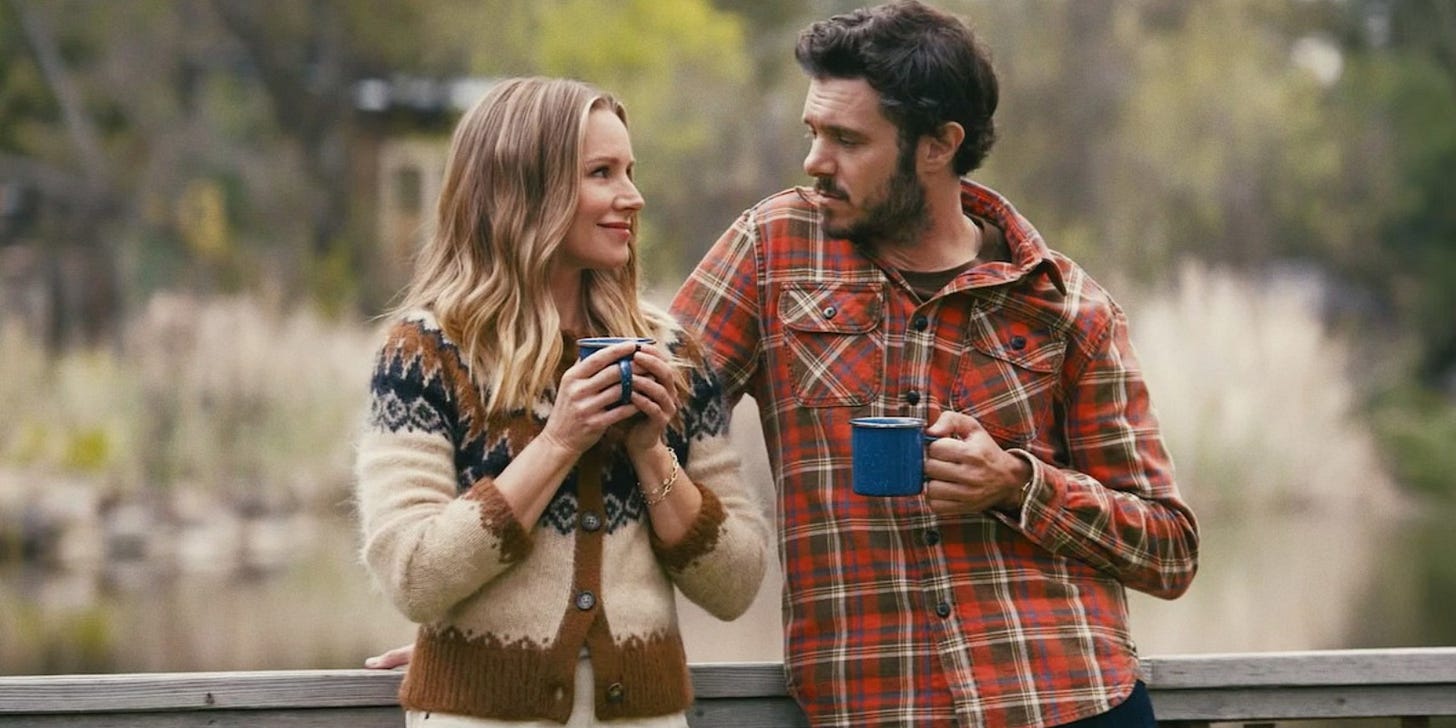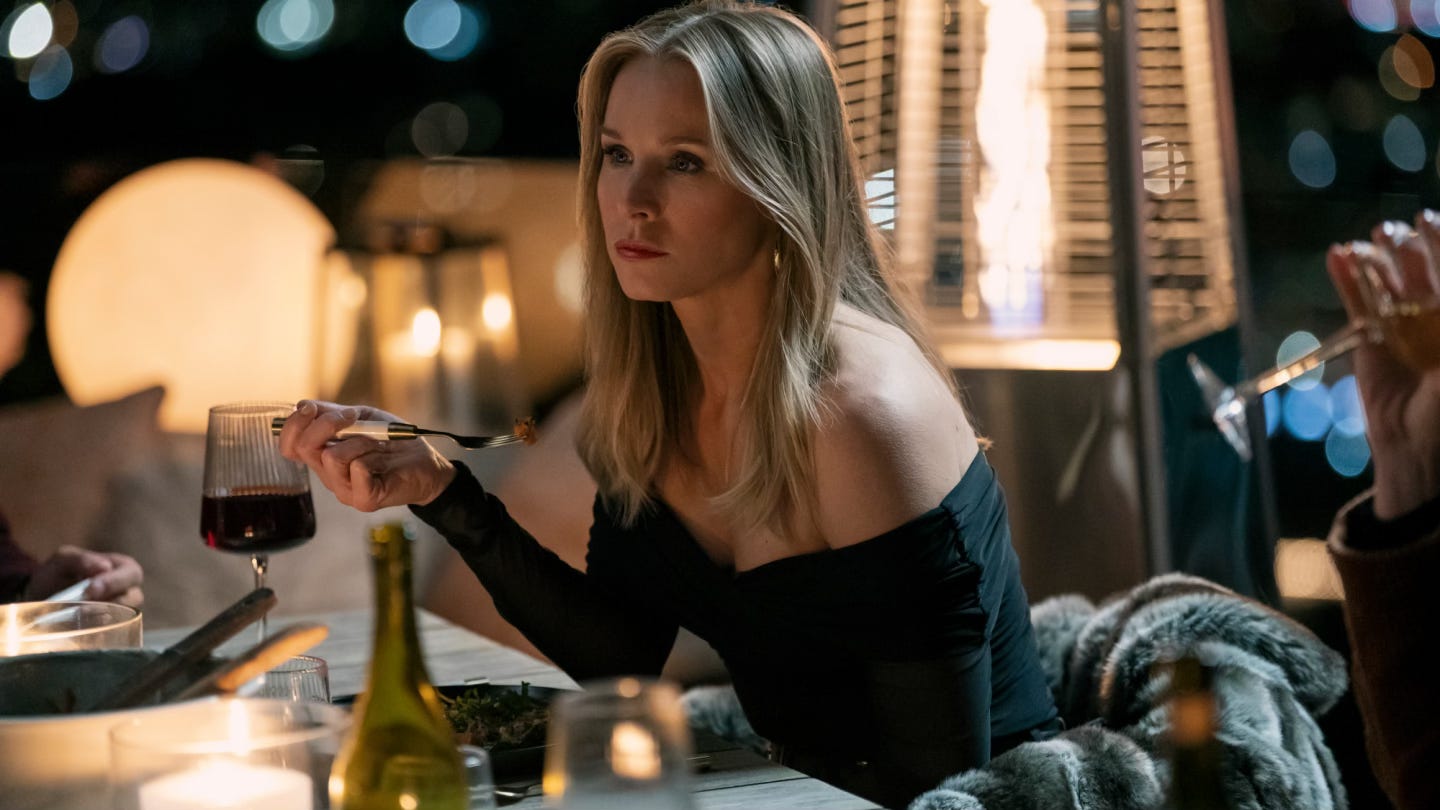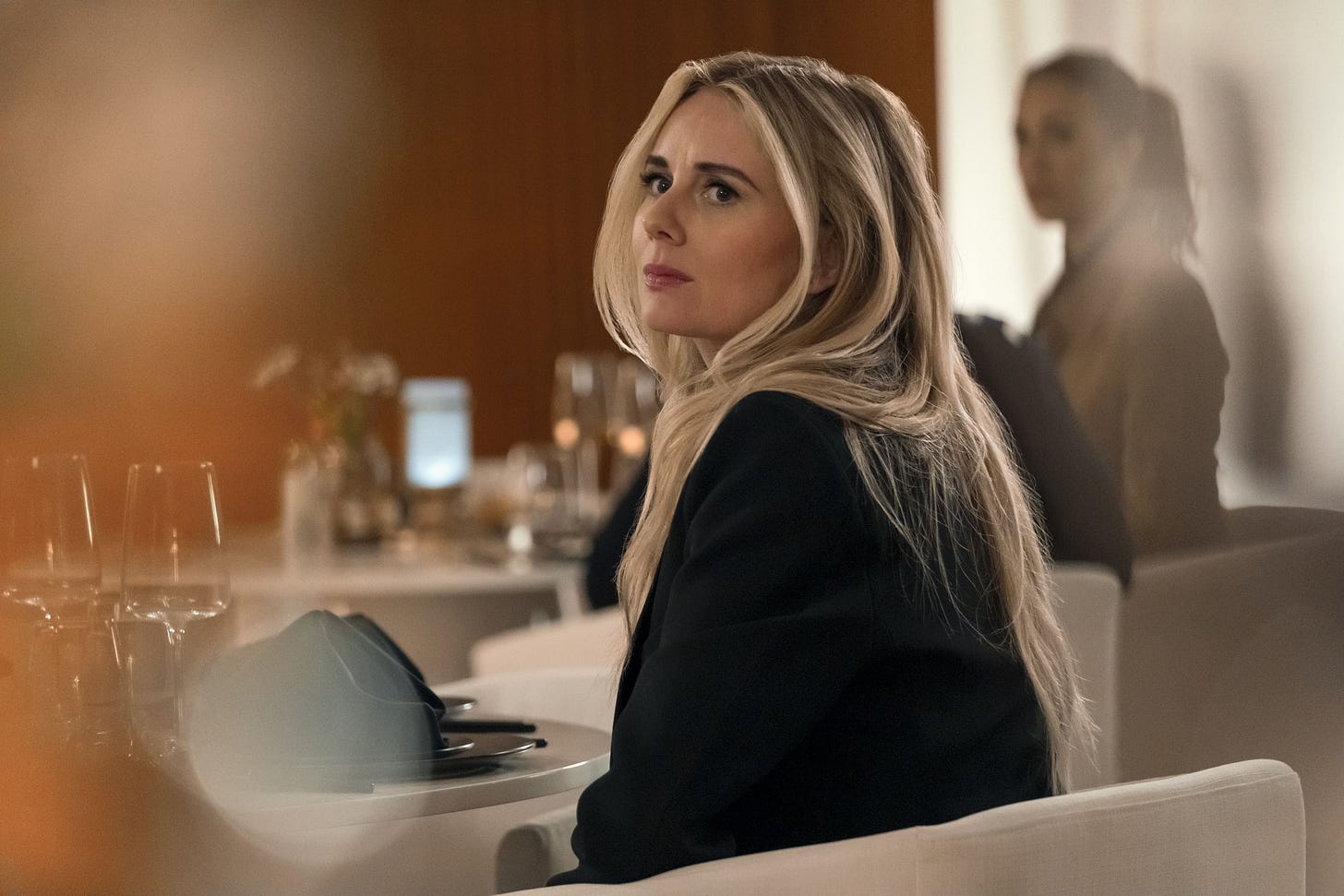Date Smarter Not Harder: The Role of Boundaries, Values, and Emotional Maturity in Relationships
Inspired by Nobody Wants This
After watching Nobody Wants This, I thought to myself, finally, a TV series highlighting the highs and lows of dating with a touch of emotional maturity, self-awareness, and intentional effort—without the drama or scandals we're used to seeing on our screens.
Thanks to social media, dating podcasts, and personal stories—both our own and those of friends—we're constantly exposed to others' romantic pursuits. These narratives often paint a bleak picture of the dating landscape, leading some to believe there's, as they say, "piss in the dating pool." With this mindset, few are eager to dive in when they're repeatedly told they must navigate pissy, murky waters to find what they're looking for.
Nobody Wants This on Netflix comes at the right time. It helps us challenge our pessimistic beliefs about finding love and exposes us to how emotional maturity, self-attunement, and intentional boundaries are vital in finding love that aligns with our values and life goals.
In the series, Kristen Bell plays Joanne, a podcast host who talks about all things sex and relationships, meets Noah, played by Adam Brody, who happens to be an unconventional rabbi. In the real world, you might think there's no way these two people have anything in common, but they do, actually, and that is they both have a desire to give love and be loved. As the series unfolds, they try to figure out if love is enough to merge their very different worlds.
Joanne and Noah show us that love is more than chemistry—it’s a conscious choice to show up, grow, and believe in the connection you’re building.
Here are my takeaways from Nobody Wants This on how self-awareness, boundaries, and intentionality can guide us toward healthy, fulfilling relationships.
Emotional Maturity in Dating: Knowing Yourself First
One of the biggest hurdles in dating is knowing what you want—not just for an ideal partner, but for yourself. Who you date can negatively impact your quality of life and mental health, so it is crucial to get clarity regarding your values, what you want in a partner, and the life you want to live with them. This requires self-attunement, which is our ability to connect with our emotional experiences. It’s the practice of checking in with our feelings, identifying needs, and understanding what drives our choices. When we’re attuned to our emotions, we gain clarity on what we want and don’t want in a relationship–which helps with identifying behaviors that are red flags or green flags.
When we lack self-attunement, we’re more likely to make decisions that go against our best interests or lead to patterns that don’t serve us and keep us on a cycle of self-sabotage. For example, we might find ourselves entertaining people who feel familiar, even if that familiarity is rooted in past pain or unresolved issues. Or we may ignore red flags, hoping things will improve because we’re so focused on our idea of love and being loved that we disregard all behaviors and patterns not rooted in love.
Another thing we might do is engage in something called delusional optimism. This occurs when we allow our fantasies to override reality because we've created an idealized story about a person in our head. We then wait for their actions to align with this imaginary version of them we've constructed in our mind. The problem is that this gets in the way of us believing people when they show us who they are. Remember this: people’s actions are real, not your fantasies about them.
To practice self-attunement, ask yourself questions like:
What does a supportive relationship look like to me?
Are there any behaviors I’m ignoring that make me feel uncomfortable or unsafe?
What values are non-negotiable for me in a partner?
Reflecting on these can help you better understand what you’re looking for and make choices that align with your true self.
Setting Boundaries with Negative Voices
If you're anything like me, you probably rolled your eyes every time Joanne's sister, Morgan, criticized her newfound love for Noah. It became clear that Morgan preferred the old version of Joanne—the one stuck in unfulfilling, toxic relationships—because it provided content for their show. I also noticed a hint of envy in Morgan as she watched her sister find what she, herself, was seeking–partnership. Rather than supporting Joanne's relationship, Morgan projected her negative perceptions and experiences onto Joanne and Noah. You know the phrase "misery loves company"? Well, unfortunately, Morgan's reaction to Joanne's growth perfectly embodied those words.
Negative opinions, whether from friends or family members offering unsolicited (or even solicited) advice, can cloud our judgment, making it harder to connect with our feelings. Setting boundaries is essential in protecting our emotional peace and romantic relationships. This might mean gently letting someone know when their opinions or advice aren’t helpful or learning to filter out critical opinions that don’t serve us, especially if the source providing the opinion is jaded or biased.
Boundaries are the limits we set to protect our emotional well-being. They help us preserve our self-esteem and our ability to choose partners that are right for us, not ones others think we “should” pursue. Clear boundaries also give us room to navigate dating on our terms, allowing us to make mistakes, learn, and grow.
Consider these phrases for maintaining boundaries:
“I appreciate your concern, but I’d rather keep this part of my life private.”
“I’m focusing on finding what feels right for me right now, so I may not follow everyone’s advice.”
Remember, boundaries are there to ensure that your dating experiences are yours. Dating is a learning journey, and we must own that journey fully and use discernment when considering other people’s opinions about an experience that is not theirs.
Choosing the Right Partner for the Long Haul
What I loved about Nobody Wants This is how it emphasizes a crucial aspect of dating: finding a partner whose life goals, values, and purpose align with yours is essential for a fulfilling relationship. This idea introduces the concept of values alignment—a psychological principle suggesting that long-term compatibility is more likely when partners share similar beliefs, goals, and life outlooks. When values differ, it can lead to friction, particularly when facing major life decisions about family, finances, or lifestyle.
We see this dilemma unfold when Noah faces a life-altering decision: Will he choose love over his dream of being a rabbi? Ultimately, he does. How this will play out in season two remains a mystery. Will Noah harbor regrets? Can he find peace with his choice? What lies ahead for him in the wake of this decision? I'm eagerly anticipating the answers to these questions as the story continues to unfold.
What I know to be true is that choosing the right partner requires time to understand what you're seeking and the future you envision for yourself and your partner. Although chemistry is important, love truly deepens when partners share a life vision and actively support each other's aspirations. It's about finding someone who aligns with your dreams and is committed to mutual growth.
Ask yourself:
Does this person support my dreams and goals?
Are we aligned on key values like family, career, religion, or lifestyle?
Does this relationship allow me to be my authentic self?
Love Is a Verb: Trust Actions, Not Just Words
A vital aspect of dating is recognizing that love is not just about how someone makes us feel; it’s about how they show up and act, hence the phrase, love is a verb, meaning it isn’t just a feeling; it’s an action we choose every day. In relationships, actions reveal more than words ever could. It’s easy to say, “I care about you,” but real commitment is demonstrated through behaviors that show respect, consistency, effort, and a willingness to work through challenges together.
If you find yourself unsure about someone's intentions, observe their actions over time. Don't get caught up in empty words; make sure you're seeing things with eyes wide open, and pay attention to a person's behavior. Are they showing genuine interest? Are they consistent? Do they respect and honor your boundaries? Remember, words can be deceiving, and when we're not self-attuned, we may fall under the spell that words can create instead of focusing on actions.
The Takeaway: The Power of Emotional Maturity in Dating
Emotional maturity in dating requires self-reflection, intentional boundaries, and a commitment to finding someone who aligns with your values and long-term goals. Nobody Wants This shines a light on the importance of going beyond attraction and chemistry, encouraging us to seek the kind of connection that helps us evolve as individuals.
As you navigate the dating world, remember these key takeaways:
Practice self-attunement: Know yourself, your values, and your needs so you can make choices that align with who you are and what you truly want.
Set boundaries: Protect your emotional peace, especially from voices that might bring negativity or confusion.
Look for alignment: Choose a partner who shares your values and vision for the future.
Trust actions over words: Let love be a verb, trusting in consistent, loving actions over empty promises.
If you think there’s piss in the dating pool, all you need to do is find another pool to swim in. Stop believing that healthy love does not exist because you keep coming across rants on social media about someone’s first-date horror story, and stop making assumptions about all dating prospects just because you, too, have had a few unhealthy experiences. If you are willing to engage in relational building, you will see that dating is more than a search for a partner; it’s a journey of self-discovery, maturing, and growth.
As you continue to reflect on your relationships, may you find the clarity, confidence, and connection Joanne and Noah found.
What are your thoughts on Nobody Wants This? What themes from this piece resonated with you the most?









